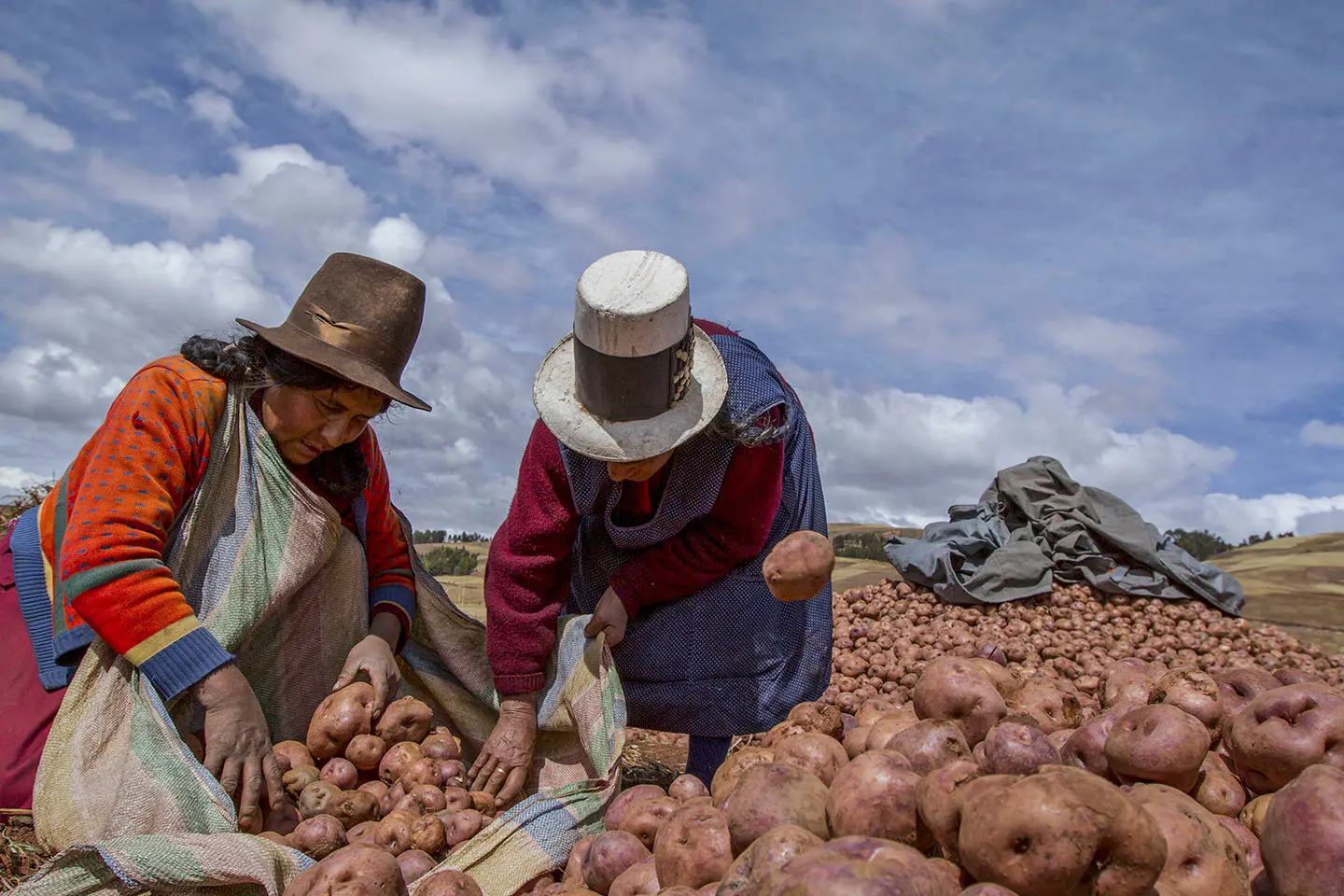May's little big mood: Potatoes 🥔 .
At the opening of any Little Big Fund Bootcamp, everyone present is invited to respond to the question: What’s your favorite way to eat a potato? There are plenty of mouth-watering answers: crispy fried slices sprinkled with lots of salt; small round ones, peeled and boiled; a scoop of mashed served with butter or gravy. This opening question about eating a potato is of course, an ice breaker, a way for the group to ease in to hearing our own voices and the voices of others. But also, by talking about the humble potato and how we enjoy it, even if briefly and perhaps in an unoriginal way, Abhinav and I bring to mind why we host Bootcamps for emerging social change-makers: we think a simple, down-to-earth, self-determining approach to starting an initiative can cultivate endless possibilities.
Food historian, Rebecca Earle has written a fascinating book, Feeding the People: The Politics of the Potato. The potato has changed the world, shaping empires, revolutions and wars. It’s staved off famine but also led to mass migrations. Potatoes have advanced agricultural practices, destroyed civilizations, and imprinted the formation of capitalism, dictatorship, and environmental conservation.
Earle writes, “It’s grown practically everywhere in the world, and practically everywhere, people consider it one of ‘our foods.” Earle calls the potato, “the world’s most successful immigrant,” because its origin has become nearly unrecognizable for producers and consumers everywhere. In other words: the potato feels local to everyone while at the same time, as Earle writes, “No plant is as universally useful (and I would say, as loved) as potatoes.”
To me, potatoes are no-nonsense shape-shifters and deliciously self-governing. You can plant a whole large or small one, even a piece of one in soil and it will sprout flowering stems above ground while simultaneously making more potatoes underground. Yes, potatoes do better with regular watering but they don’t need much. In warmer, dryer climates, the yield may be fewer, the potatoes smaller. The potato persists. Cultivation of potatoes first happened in 8000 BC and today, biochemists report that potato plants have the means “to still grow in the future at increasing temperatures.”
Have you heard the phrase: to drop like a hot potato? It’s an idiom that originated in the mid-1800s, alluding to the fact that cooked potatoes retain a lot of heat and are hard to hold in your hand. It’s used to describe a situation that is ‘too hot to handle’, or ‘risky to deal with’; a problem that is ‘seemingly insoluble.’
There are so many hot potatoes in the world right now, so many injustices, and problems that are hard to handle. The list of things that make us feel uncomfortable, maybe even angry, goes on and on. But through the LBF Bootcamps we meet amazing people —Believers -- who not only like to eat potatoes but also choose every day not to turn away from injustices. People who refuse to hand off those hard, seemingly insoluble problems to others. People who are self-determining, grounded, ready to sprout stems and flower. They rise up -- out of the invisible dark some days — strong and determined, like the real, humble, universally important potato, and little-by-little, shape our world.
One Potato. Two Potato. Three Potato. Four. Enjoy potatoes, hot, cold and otherwise.

